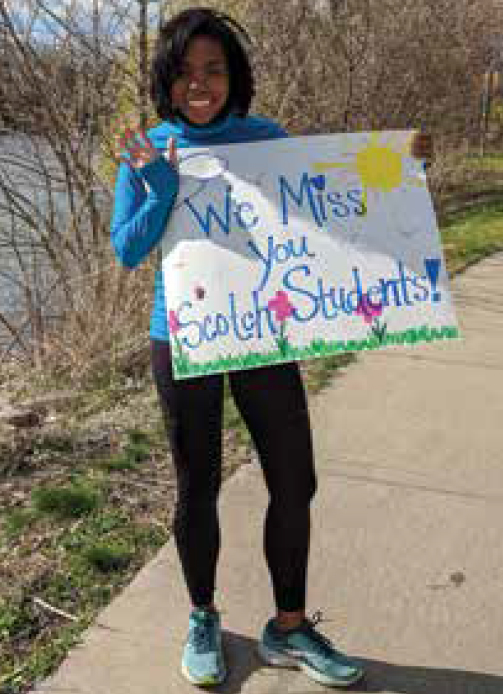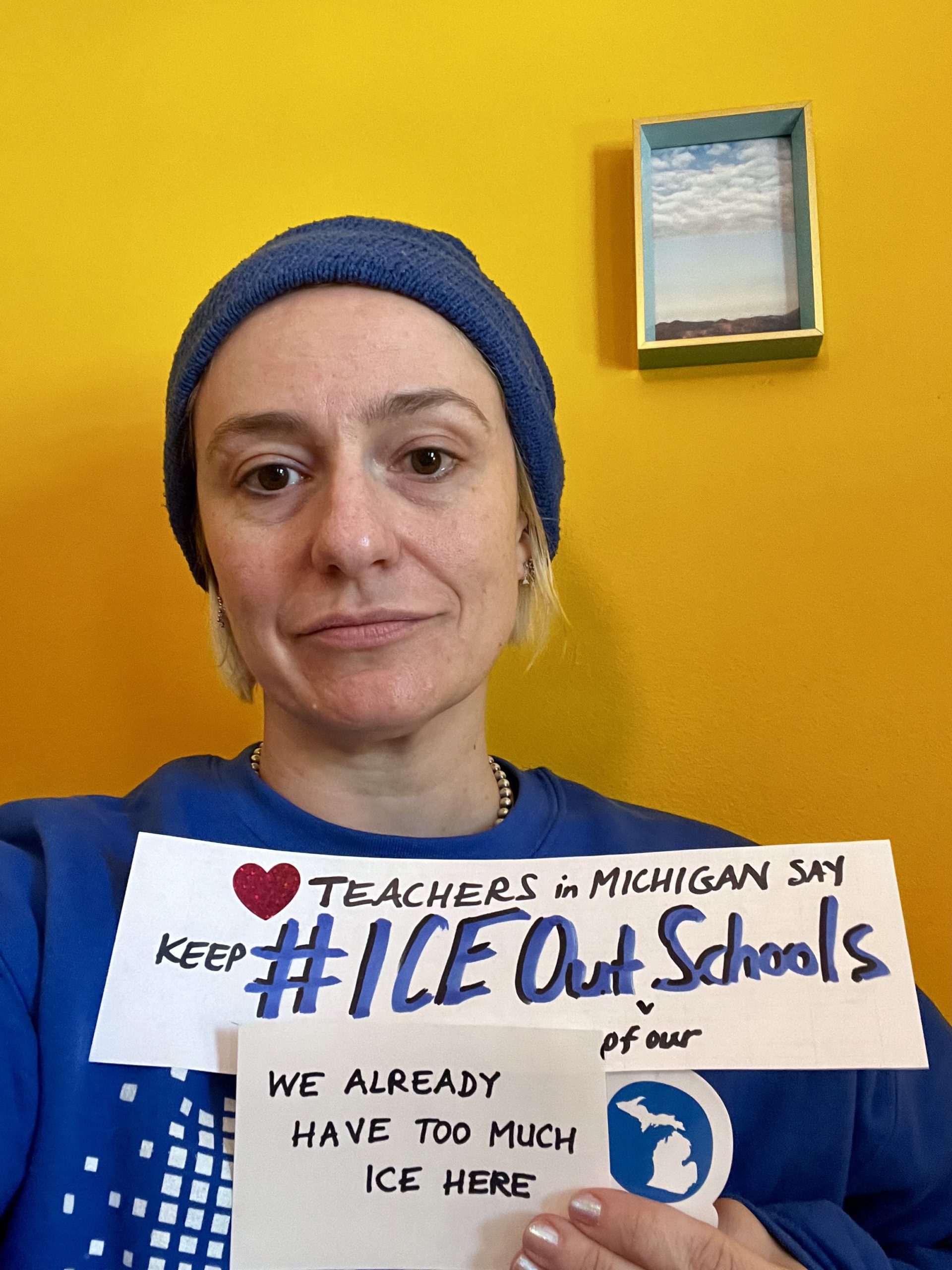Claudia Rodgers: Committed to her Work
For Claudia Rodgers, a second-year social worker with the West Bloomfield School District, the pandemic’s constraints can be summed up by the old expression, “out with the old, in with the new.”

“Most of us are social people,” the MEA member said of herself and social worker colleagues. “We enjoy social interaction with others, whether it’s our clients, our co-workers, or our community. It’s really hard not being able to see students and their families, not being able to see our own families.
“Trying to find that balance between needing social interaction while staying safe has been very, very challenging.”
Rodgers’ job is to ensure the well-being of students, with a focus on kids in grades 3 through 5. The COVID-19 crisis has greatly increased her workload, but it also makes her feel most effective
because the need is so critical.
“I think if you were to talk to any social worker working in any field, when things get really tough, that’s when you get most committed to your work.”
On a typical day in a typical school year, Rodgers works with all students but plays a unique role in helping mitigate issues between students and between students and their parents, which sometimes impact what’s happening at school.
Her work with special education students typically makes up the majority of her role, helping to set objectives and work with students to achieve goals and monitor progress. She also meets with students in general education classrooms in small groups to help with issues and teach social-emotional-behavioral skills.
“Not seeing a student’s face makes it difficult to know if they’re feeling sad or frustrated,” Rodgers said. “Now, more than ever, kids need affective vocabularies so they can
verbally share how they’re feeling when you can’t see it in their faces.”
The pandemic has grown the breadth of her work to include supporting more families who are in need across every socioeconomic and ethnic background. Supports range from tools to help their children stay engaged in learning to help finding and accessing financial assistance, food, health care, and counseling services.
“Most of my work now is helping families find tools and strategies to keep their kids on track,” Rodgers explained. “Helping those students to stay focused on learning while also addressing their social needs is more than a full-time job.”
Insecurity and anxiety can arise from social isolation, which students may experience because of changes to in-person learning, physical separation for occasional virtual learning, and switching back and forth between the two, Rodgers says.
“Teachers are doing a wonderful job at providing virtual learning experiences for West Bloomfield students, but I believe it is setting up a different set of demands and expectations, and that can be tough for anyone but particularly for younger students.”
What does the future hold?
“When things return to some sort of normalcy, I don’t see returning to the old way of working with students,” Rodgers said. “I believe what we’re learning and doing in this time of pandemic will make us better at what we do. And what we do is help students succeed.”
Read more stories from the series, “What it’s Like: COVID Vignettes”:
Karen Moore: secretary with a purpose
Karen Christian: COVID ICU survivor
Jacob Oaster: leader, teacher, innovator
Amy Quiñones: Charting New Waters
COVID-19 Q&A with Paula Herbart
Union Presidents Lead through Unprecendented Crisis
Jill Wheeler: On Books, Kids, and ESP
Gary Mishica: His Work is Hobby, Joy, Passion
Demetrius Wilson: ‘We’ve made it work’
Shana Barnum: ‘It’s heart-wrenching’
Danya Stump: Building Preschool Potential
Rachel Neiwiada: Honored on National TV
Tavia Redmond: ‘Let me tell you about tired’
Gillian Lafrate: Student Teaching With a Twist (or two)
Jaycob Yang: Finding a Way in the First Year
Julie Ingison: Bus Driver Weaves Love into Job
Chris DeFraia: Sharing a Rich Resource



